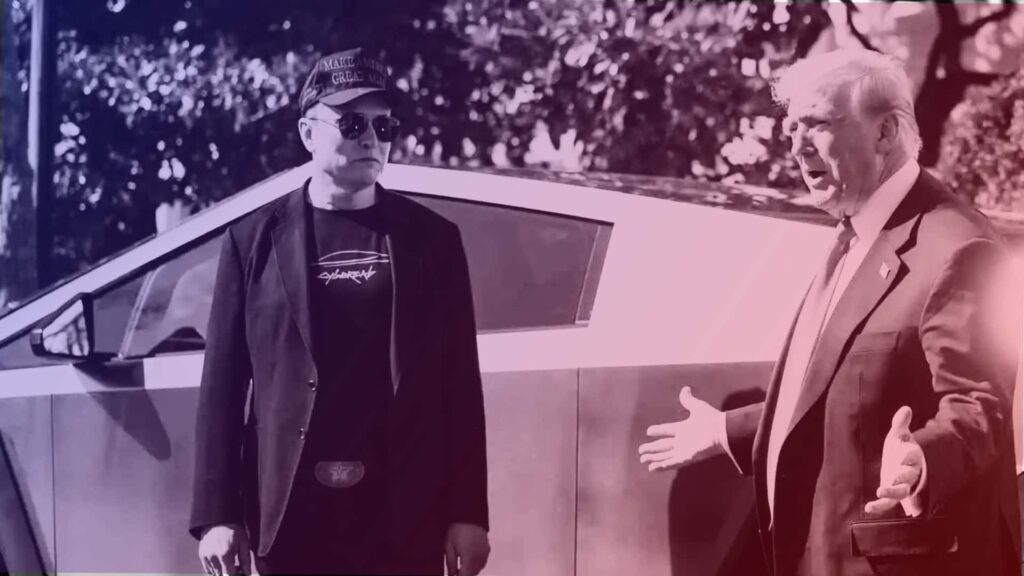Tesla, the electric automaker led by CEO Elon Musk, has recently faced some challenges in the market. Despite a recent public display of support from President Donald Trump on the White House lawn, Tesla’s stock took a significant hit, marking one of the worst days for the company in years. Trump, who has previously been critical of electric cars, showed unwavering support for Tesla during the event. However, the impact of this endorsement on the broader market remains questionable.
A recent survey conducted by market analysis firm Escalent sheds light on the shifting perceptions of Tesla among different political groups. The survey, which included 897 drivers intending to purchase a new vehicle, revealed interesting insights. While 35% of conservatives reported an improved opinion of Tesla in the past six months, only 17% of them expressed willingness to consider buying an electric vehicle (EV). On the other hand, 53% of liberals and 31% of centrists indicated a decreased likelihood of considering a Tesla for their next vehicle.
The data suggests that while Tesla may have garnered some support from conservatives, the brand’s overall appeal has taken a hit among liberals and centrists. KC Boyce, Vice President of Escalent, emphasized that these groups constitute the majority of the market and are key players in the EV segment. Despite the conservative interest in Tesla, the overall sentiment remains negative, with a significant portion of liberals and centrists turning away from the brand.
Tesla’s stock price, which is closely tied to Musk’s wealth, has been on a downward trend following the White House event. The brand’s response to the challenges has been mixed, with influencer marketing attempts drawing criticism from various quarters. The toxicity surrounding Tesla in the public eye has raised concerns about its future trajectory.
As EVs become increasingly mainstream, the politicization of the technology poses a challenge for companies like Tesla. While conservative support may provide a temporary boost, the long-term sustainability of the brand depends on its ability to appeal to a broader audience. With EVs gaining traction in the market, Tesla’s approach to marketing and public relations will play a crucial role in shaping its future success.
In conclusion, Tesla’s recent struggles underscore the complex dynamics at play in the EV market. As the company navigates challenges and seeks to regain lost ground, the road ahead remains uncertain. With competition intensifying and consumer preferences evolving, Tesla will need to adapt its strategies to stay relevant in the ever-changing automotive landscape.

